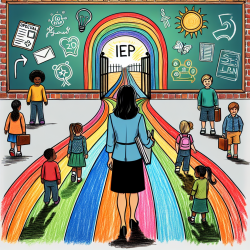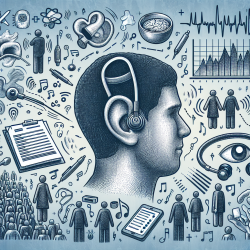In today's educational landscape, the role of teachers extends beyond academic instruction. They are increasingly called upon to address the mental health needs of their students. This evolution is driven by the recognition that early intervention in mental health can significantly impact a child's academic and social success. A recent study titled "Educator Perspectives on Mental Health Supports at the Primary Level" sheds light on this critical issue, offering insights into how educators can improve their skills and advocate for better resources.
The Importance of Mental Health Support in Early Education
Mental health is a crucial component of a child's development. It encompasses emotional, social, and behavioral functioning, which can vary over time and under different conditions. Good mental health is characterized by achieving developmental milestones, healthy social interactions, and effective coping skills. Conversely, poor mental health can lead to disorders that impair a child's ability to function effectively.
According to research, approximately 17% of children aged 2-8 in the United States have a mental, behavioral, or developmental disorder. These challenges are often exacerbated by factors such as family stress, trauma exposure, and socio-economic conditions. Despite the prevalence of these issues, many children do not receive the necessary support.
Challenges Faced by Educators
The study highlights several challenges educators face in supporting student mental health:
- Lack of Training: Many teachers feel unprepared to address mental health issues due to insufficient training.
- Systems-Level Constraints: Constraints such as funding limitations and lack of personnel hinder effective support.
- Resource Scarcity: There is a significant need for more programs and resources dedicated to mental health.
These challenges are compounded by the increasing demands placed on teachers to balance academic instruction with socioemotional support. The COVID-19 pandemic has further strained resources and increased the workload for educators.
Opportunities for Improvement
Despite these challenges, there are opportunities for educators to enhance their ability to support student mental health:
- Professional Development: Schools should invest in training programs that equip teachers with the skills needed to identify and address mental health issues.
- Collaboration: Building a collaborative environment among school staff can lead to more effective interventions. Teachers should work closely with counselors and psychologists within a multi-tiered system of support (MTSS) framework.
- Universal Screening: Implementing universal socioemotional screeners can help identify students at risk early on, allowing for timely intervention.
- Consistent Language and Procedures: Establishing consistent terminology and procedures across schools can improve communication and ensure continuity of care as students progress through grades.
The Role of Online Therapy Services
Online therapy services like those provided by TinyEYE offer an innovative solution to address therapist staffing shortages and provide accessible mental health support. By integrating these services into schools, educators can ensure that students receive consistent care without stigma or barriers to access.
Conclusion
The findings from "Educator Perspectives on Mental Health Supports at the Primary Level" underscore the need for systemic changes in how schools approach mental health. By addressing training gaps, increasing resources, and fostering collaboration, educators can play a pivotal role in enhancing student well-being. This commitment not only supports individual students but also contributes to a healthier school environment overall.
To read the original research paper, please follow this link: Educator Perspectives on Mental Health Supports at the Primary Level.










